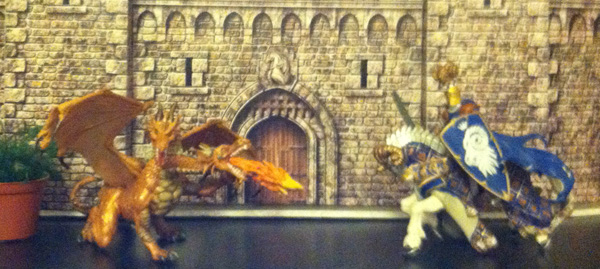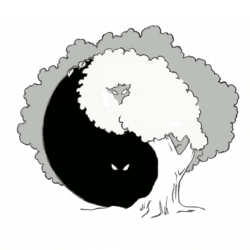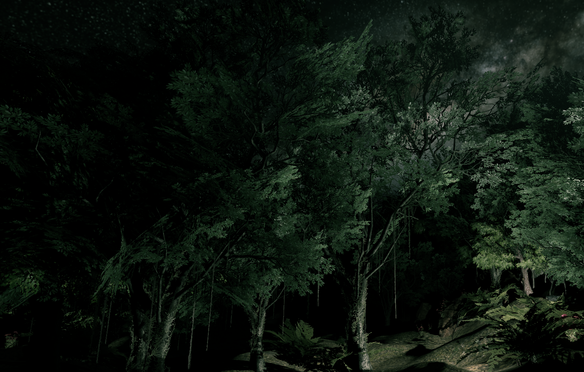 Hello. My name is Leonard, and I'm a power gamer. It feels a curious thing to admit to, given some of my other beliefs about myself, but there you go. And I think it's why I was able to get my mind around D&D 4E and have some fun with it while my friends were dissing it as a lost cause. I've also got a reputation as a strategy board-game shark, and let's be honest: at its core, 4E is a strategy board-game dressed up in role-playing clothes.
Hello. My name is Leonard, and I'm a power gamer. It feels a curious thing to admit to, given some of my other beliefs about myself, but there you go. And I think it's why I was able to get my mind around D&D 4E and have some fun with it while my friends were dissing it as a lost cause. I've also got a reputation as a strategy board-game shark, and let's be honest: at its core, 4E is a strategy board-game dressed up in role-playing clothes.
I got to thinking about this recently for multiple reasons, but they all boil down to two things. First, I clearly make a much better game master than I do a player; as a player I can get insufferably competitive. Second, I've been running into many a gamer on the internet whom I don't see eye-to-eye with because they believe that the rules of an RPG should be inviolate. I don't. And it's dawned on me that my own history as a power player has a lot to do with my looking at the rules of any RPG as "more sort of guidelines" when I game master.
I've learned to never take the published rules of an RPG too seriously because whatever those rules happen to be, I can break them. I've been doing this RPG thing since the dawn of the hobby, when I could still count my age on my fingers, and I make my way in life on a talent for pattern recognition. I've never had my IQ measured, but I've more than once taken MENSA sample tests and thought, "Is this all there is to it?" My brother who actually did have his IQ measured once at 145, always used to complain that I made him feel slow. Between gigs as an actual software developer, I once did a few months as a software data tester for a major international data company, and I was the guy they threw all the tough jobs on that project at. If I couldn't break their software, they knew it was solid. So bring it on. There is no RPG system in publication that I can't drag through the mud and stomp into a thousand little pieces.
And in the end that proves... what? Accomplishes what? Even if the game designer was aware of how thoroughly I could break his game, and even if he cared, it's not like he could fix it. Whatever changes he could make, I'd break those, too. Even trying to make a system to challenge me on that front would alienate most of the players who haven't already spent decades immersed in the business of virtual strategy. That would be publishing-suicide.
Nor does my breaking a game ever endear me to my fellow players. To them, it's all selfish grandstanding. I get so wrapped up in my own cool that I step on theirs, and convince them that they've got better things to do with their time than to hang about in my delusional shadow. I turn myself into a living poster child for the affliction of "smart = dumb". Having the sort of brains that IQ measures is a convenient talent, but it's not by itself a socially redeeming feature, and it's sure not any kind of silver bullet against the failings of the human condition.
So if trying to crack and overpower the rules of an RPG is bad, where does that leave me? Contentedly pretending that I don't know how to break the game while I purposefully stumble along failing at stuff so that it will look like I'm being challenged? Or perhaps I'm just relying on the GM to use his infinite power to give my characters special mistreatment? The game may not be able to outmaneuver me, but the GM sure can. That comes standard with the localized omniscience/omnipotence package deal -- which of course makes it every bit as pointless for him to prove he can break my character as it is for me to prove I can break his game system.
No, in the end I simply have to discard the notion that the rules of an RPG are there for any other reason than to add structure and unpredictability to a cooperative effort in storytelling. I can't play to win, I won't play to lose, so I just play to play. And when a rule consistently steps up and interferes with the basic point of play for the sake of play (i.e.: fun), I don't care where that rule came from, it's nominated itself for the chopping block. Assuming I'm the game master, that rule will be revised, or it will die.
My best tangible examples of this process usually come back to Greg Stafford's Pendragon RPG, simply because he did enough things right that I've continued to play it over the years no matter what bits wound up getting house-ruled. Also, excepting the older versions of D&D I played as a kid, it's unrivaled for the number of hours I've spent looking at it from both directions (player and game master). Every other game comes up dreadfully short of it from either one perspective or the other. And the game as-published, straight up and unrefined, is to the power-gamer in me what the Hollywood version of a frat party would be to an alcoholic nymphomaniac. The most munchkin-ish dungeon crawl game ever dreamed up could not hit me in the same visceral way that Pendragon has, because Pendragon combines the potential for rampant abuse with the chance to actually care about the narrative. Then it gets in my face and pulls out all the stops, trying to entice me.
(Caveat: I've never played the latest edition of Pendragon, so some of these observations may not apply to it.)
The getting-in-my-face part is the heroic NPCs. Every character from Arthurian legend is built to be an unattainable paragon with abilities no player character could ever hope to achieve. Tagging along with these NPCs and basking in their awesome is supposed to be one of the highlights of the game, a presumption to which the power-gamer in me responds, "Oh, really...?" Then he starts plotting a thirty-session game plan as to exactly how he'll accomplish driving a sword through the guts of the impossible, cheating, and essentially invincible Sir Lancelot. At least one of the classic adventures, Circle of Gold, is designed to be nearly as bad -- not really meant for player-characters to win, and certainly unattainable if you play a campaign as recommended and you don't power-game it. So, yeah, I took up that gauntlet, too.
Even as I'm power-gaming, I can care about the Pendragon narrative for two big reasons. First, a PC's personality is a quantified and essential part of power-gaming in Pendragon, so even the worst combat monsters don't need to be complete cardboard cutouts. Second, the dynastic element of the game means that every success is something to build on, not just for the future of your character, but for the future of his heirs. That makes it very easy to fall into the trap of thinking, "Sure I'm making the pure power choices now, but death is a very real and permanent option for a Pendragon character; I need to make sure mine stays alive for the long haul, then once he hits a certain power level, I can ease up. It'll actually leave me better positioned to develop his non-combat aspects than if I'd focused on them from the word go." Of course that time for focusing on his non-combat aspects never comes, often because I've disgusted the other players into quitting before I can get there. But the combat power also works like money: "enough" is always more than whatever you have right now.
That brings us back to the question of why the Pendragon rules are so easy to break. The short answer is "compound interest and critical hits". I could draw you a mathematical map, but probability screams that for reasons of basic survival, every character should fight to get a weapon skill up to 20 at the earliest point possible. From then on, every point of character development you pour into that weapon skill makes it easier and easier to earn more character-development points, quickly leaving behind anyone who doesn't choose to go that route. The result is a spectacularly dysfunctional cycle that preys on the addictions of power gamers.
With Pendragon being my wife's game-of-choice as a GM, and me loving the game as well, I didn't think twice about taking a hatchet to the broken bits of the rules and offering her ways we could enjoy the game together without it dangling constant temptation in front of me to act like a jerk. If you don't think our house-ruled version of the game can truly be called "Greg Stafford's Pendragon RPG", I'm okay with that. But it's at the very least an homage to "Greg Stafford's Pendragon RPG", and he's convinced us to support his creative endeavors by buying many of his books over the years, so I'd certainly like to think he'd be okay with that.
The point all of this comes back to is this: yes, in the days when the pioneers of the hobby were first feeling their way into what this new hybrid of game and storytelling was, back before the internet and even before the home-computer revolution, pretty much everyone approached RPG as the next step in the evolution of wargaming. We played it like it was all about beating the game system, excepting those of use who played it like it was about beating the game master. With Gygax leading the charge, we had our Tomb of Horrors and our Grimtooth's Traps and our tournament modules all telling us that this was a competitive sport, and we should be playing paranoid, constantly on our toes and working out the optimal strategies to beat the system. And I fell for it, same as anyone back then. And I truly had fun doing it. But computer games have long since taken cultural ownership of that particular niche. For fair and impartial test of wits against a game system, no human "referee" can compete with a modern computer for impartiality, speed, and audiovisual presentation. Where the human game master rocks in ways that a computer still can't touch is personalized storytelling, improvisation, imagination, and pure human companionship.
If as a role-player in the 21st century, you find that you can sit down determined to prove something to yourself -- or to anyone else -- with your tactical expertise, and you get a lovely adrenalin rush out of it, cool. Knock yourself out. There's nothing wrong with it. But that's you. It's not me. I just can't do that anymore. I haven't been able to for a long time. Even when I was enjoying D&D 4E, I found myself wearying of the battlemap treadmill and wondering when the real game was going to start. The power gamer is still in there, but he mostly gets his fix from Civilization V or Settlers of Catan. When I pull out all the books and the funny dice now, I just want to relax and have a good time with my friends.
So while I may still pay a game designer for his system or his story ideas, the moment I get my hands on that book, it's not his any more. It's mine. It belongs to me and my friends, and we'll twist it into any crazy shapes our demented little hearts desire. I do it because I've been the pedantic, rules-lawyering power role-player, and I've discovered I just don't like me when I'm him.
How I Stopped Worrying and Learned to Love the Game
Comment

Blog Search
Blog Archive
- September 2022 (1)
- August 2022 (1)
- July 2022 (1)
- May 2022 (1)
- March 2022 (1)
- February 2022 (4)
- January 2022 (5)
- July 2021 (2)
- April 2021 (1)
- December 2019 (1)
- May 2018 (1)
- September 2016 (1)
- October 2013 (1)
- June 2013 (2)
- May 2013 (2)
- April 2013 (2)
- March 2013 (2)
Comments
-
January 21, 2022
-
January 21, 2022
-
CraigNJanuary 21, 2022
-
Anat ElirazJanuary 20, 2022
-
Ann MarieApril 6, 2021

